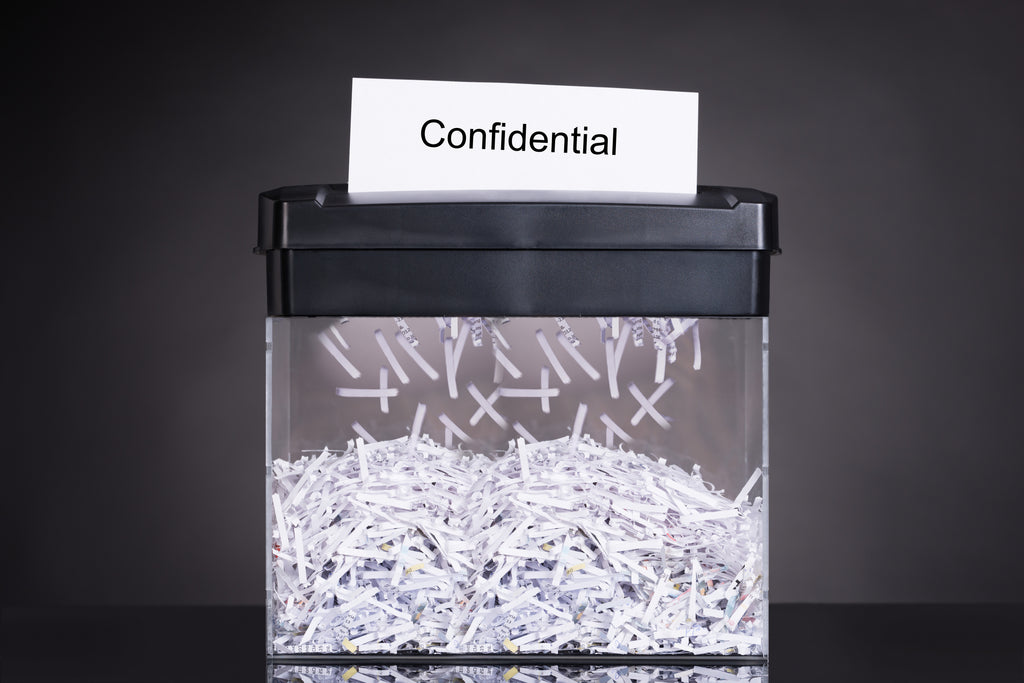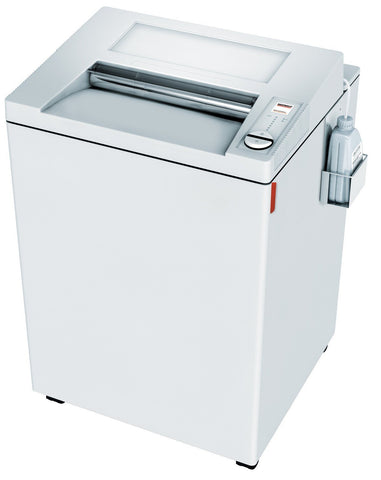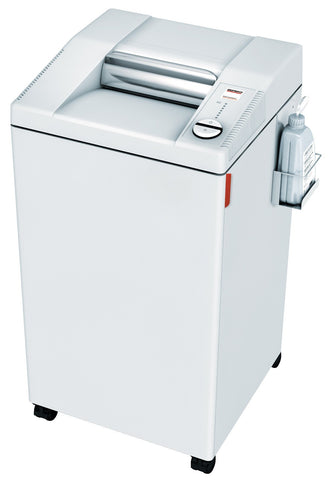See what the experts are saying about shredding mail
This clip has a brief explanation of why you should shred all junk mail!Between 2014 and 2015 alone, cyber attacks increased by 38 percent. The average cost to repair the damage caused by a large-scale cyber attack is more than $4 million, and they affect several hundred businesses in the U.S. each year.
But with so much national focus on cyber crimes, many businesses are failing to protect themselves from other types of identify theft. And that threat doesn't just affect business; individuals are at risk as well.
That threat lurks in personalized attacks on businesses and individuals through the theft of mail thrown into trash cans.
This mail includes bills, credit card records, and more, which contain personal information like names, social security numbers, birth dates, and signatures.
Luckily, there are ways that you can protect your information or the security of your business. A paper shredder is one great way to do so, but only if used properly.
If you're ready to learn how you can protect yourself or your business, keep reading to learn 6 essential shredding tips.
1. When in Doubt, Shred It
One mistake that many individuals and businesses alike make is to only shred what they consider to be high-risk documents.
For individuals, this is often credit card payments and bills. For businesses, this may be secure records.
But there are tons of other documents that should be getting shredded rather than thrown in the trash.
Items that Individuals Need to Shred
When it comes to your personal records there are several key types of documents that you should be shredding.
Any documents that include personal information like your date of birth or social security number are among the most important items that you should be shredding. Other important documents include those that include account information about any credit cards, bank accounts, or even programs that you may be a part of.
If you have children, any documents that contain info about their age, schedule, or personal info should also get shredded. While these may not put you at risk for identity theft, they could be of interest to a potential kidnapper.
Items that Businesses Need to Shred
Businesses not only need to shred documents that could be of use to identity thieves, but also those that they are required by law to shred and to shred properly.
This includes documents related to HIPAA for businesses in the health industry, those related to FACTA for businesses in the credit industry, and those related to CIPSEA for businesses related to the government.
Depending upon the type of document and level of security, you may need to arrange for professional shredding services.
2. Have a Sorting System in Place
One of the most important shredding tips that individuals and businesses alike can utilize is to set up a shredding system.
For individuals, this might mean shredding documents as soon as they arrive in the mail and you read them, or right after you pay your bills.
For businesses, this means assigning employees responsible for shredding documents, and then giving them a timeline for doing so.
Having a plan in place helps to make shredding routine, which can in turn help ensure that documents get shredded in a timely manner and nothing gets missed.
3. Educate Your Employees on Identity Theft
As an individual, you may already know the threat of identity theft.
But if you own a business, it's important to make sure that your employees know the risk as well.
If your business is the victim of information theft, it will affect your employees. Your business could lose revenue, resulting in the need to reduce your office size. It could result in lengthy legal proceedings.
It could also result in the theft of some of your employees' personal information.
By educating your employees of these risk, you'll make them invested in these shredding tips and more, which can help increase the likelihood that the right documents are shredded and no important ones get accidentally thrown away.
4. Think Twice Before You Reduce Paper
Reading these shredding tips and what it takes to make sure that all important documents at home or at the office get shredded can make it tempting to reduce your paper intake.
You may think about getting bills electronically or having files at your office digitized.
But the truth is that it's far easy to follow a few easy shredding tips and destroy important documents once you're done with them than it is to clean up digital records and prevent cyber thefts.
5. Have More Than One Shredder Per Home or Office
If you only have one shredder in your home or office, you may be increasing the chance that someone will accidentally throw away something that should have been shredded.
If you're only going to have one shredder at home, one smart shredder tip to follow is to put it in a place that is close to where you pay bills or respond to mail. Then, put the garbage can close as well.
This makes it easier to remember to shred documents when you're done with them and reduces the chance that something will get tossed instead.
In an office, it's a good idea to invest in several shredders and spread them out. If your employees don't have to travel far to get to a shredder, they'll be less likely to toss documents out of convenience.
6. Invest in a High-Quality Shredder
Buying cheap shredders is never a good idea. They'll break down and jam easily, which usually leads to documents getting tossed instead of properly shredded.
A high-quality, industrial-strength shredder reduces that risk.
Put These Shredding Tips to Work Today
Now that you know a few essential shredder tips, it's time to put them to work.
Proper shredding is essential to protecting your personal information and that of your business from dangerous thieves. By protecting yourself in advance of these attacks, you'll save yourself or your business from expensive legal battles, stress, and more.
If you're ready to start protecting your home or business, start by browsing our selection of top-quality paper shredders. We offer cross cut, strip cut, and more.




